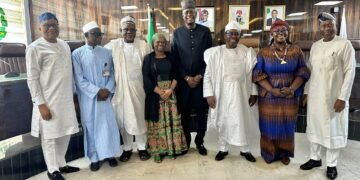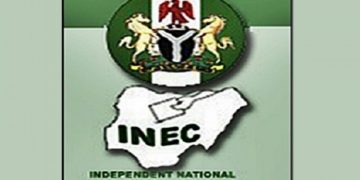Seven months after, the industrial action is still turning and turning in the widening gyre, the falcon, ASUU, cannot hear the falconer, Federal government; Things fall apart; the centre we cannot find, the centre cannot hold; mere anarchy is loosed upon the country? Wherewithal now, a scholar once described university as a citadel of knowledge for learning and quality research were the future giant are build. Today, In the university system, there are two recognized categories of workers; the Academic staff and non-academic staff. Out of this two, it’s quite obvious that the most “consequential” is the academic staff. The academic staff are the members of the teaching staff of the university. Like every other organization, the academic staff has their own union body that fights for the welfare of their members and change in the university system. This union is called the Academic Staff Union of the university (ASUU). It’s a Nigerian union of university academic staff founded in 1978. A successor to the Nigerian Association of University Teachers formed in 1965 and covering academic staff in all of the Federal and State Universities in the country.
Since the of operation of this union in Nigeria, empirical studies have shown that whenever workers are demanding or agitating for certain entitlement or changes, they embark on strike also dubbed Industrial action, which relays stoppage of work for a while in order to allow the employers to yield to workers agitation or demand. Before conceptualizing industrial action, it’s pertinent to look into the meaning of industrial relationship. Hence, in the existential studies of Okaka 2015, and Fajana 2005, industrial relations is the pattern of interaction that exist between trade unions (or employees) and employers. It includes all the issues affecting human resources as well as the effort of the government in such human resources management. Howbeit, whenever these relationships go afflictive, it is bent upon to be industrial action. The strike or Industrial action of which is any form of action by employees which is aimed at compelling the management or employers to come to terms with the demands of the employees. Many savants have agreed that Industrial action is often as a result of conflicting interest between employers and employees in respect to working conditions, wage demands and management policies.
Wherein today, from independence till date, it’s quite blatant Nigeria has encountered variant industrial disputes between the employer, Federal government and other parastatals, most popular among them is the ASUU vs Federal Government regular face-off which seems never to end. It’s sad observing that since the inception of the union in 1978, the union has undergone series of industrial action that amounts to over 20 industrial action. The first industrial strike of the Academic Staff Union of the university (ASUU) as reported by Olusegun in 2014 commenced in 1988 during the military regime of General Gadamosi Ibrahim Babangida which lasted for one year and nine months. The strike was anchored on fair wages of the union member, setting up of a join negotiation committee between the federal government and the university staff union and university autonomy. The strike of which led to the prescription of ASUU on 7th of August 1988 and this also resulted into the seizure of ASUU properties and the union was as well banned by the federal government. It’s was indeed a tough strike, with many stories after. It’s sad that before this popular 1988 strike, ASUU have been having problem with the various military leaders, the struggle has always been against the re-colonization’ of Nigeria and debt peonage, rejection of privatization and many unkempt polices.
Again, history can also bear witness that this incumbent Buhari adminstration is not new to ASUU, facts records of Ojeifo S. Aidelunuoghene of Ambrose Alli University unfurled that the Buhari/ Idiagbon regime had a clamp-down on the Nigerian Medical Association (NMA) and the National Association of Resident Doctors (NARD) because of ASUU’s support, the government then sacked doctors, arrested and detained NMA and NARD leaders as well as ASUU leaders. Still in 1985, ASUU had problems with the same Buhari/ Idiagbon regime over a number of issues: termination of the cafeteria system and the withdrawal of subsidies on accommodation in universities; the regime’s authoritarian Decree 16 of 1985, which transferred to the National Universities Commission the power of the University Senate to determine, regulate and monitor academic programs. It took accreditation of academic programs away from the professionals and transferred it to the NUC. It therefore established what is called uniform standard and called them “minimum” standards. One cannot exhaust all of ASUU and the FG variant face offs during the military regime.
Pathetically, the democratic entrance also have not really favoured ASUU and it employer. They have been into different irreconcilable troubles from 1999 till date. Since 1999 however, Nigerian Universities led by their lecturers have been on strike for a cumulative a period of God knows. Thus, If there’s anything that has been very constant in the academic calendar of the Nigerian Universities since 1999, it is the Academic Staff of Universities Union (ASUU) and the Federal Government of Nigeria that are always in conflict over funding of the Nigerian Universities, better working condition among other ASUU demands. And each time the two parties call for a meeting to settle their disagreements, it usually ended with the government promising the union that the demands would be met soon. The government’s refusal to meet the union’s demands since 1999 has however been the basic reason ASUU goes on strike almost every year.
According to pulse.ng, after the end of the military era in 1999, Nigerians ushered in democracy and a government that promised to be people oriented. But it didn’t take long for Nigerian students to experience a disruption in their academic pursuit. Few months after the Obasanjo-Atiku administration was sworn-in, ASUU embarked on a nationwide strike and it lasted for five months. Two years after in 2001, ASUU declared another strike over the reinstatement of 49 lecturers sacked at the University of Ilorin. The industrial action was aggravated when the then President, Chief Olusegun Obasanjo described Nigerian university lecturers as “a bunch of lazy and ungrateful people” The strike was called off after three months.
Records also unveiled that having had an agreement with the Federal Government during the previous strike, the union was forced to embark on another industrial action on Sunday, December 29, 2002, after the Obasanjo administration failed to implement the agreement. The strike lasted for only two weeks. Albeit, another came in 2003, where ASUU embarked on another industrial action due to the non-implementation of previous agreements, which covers poor university funding and disparity in salary and retirement age.
We can also talk of 2005, another industrial action year, as lecturers went on strike for two weeks. It didn’t take long in April 2006 academic activities were paralysed in all public universities across the country when ASUU declared a 3-day warning strike. It eventually lasted for one week. Another came in 2007. The strike lasted for three months. The reasons for the strike was pretty much the same reasons for the previous strike. Pulse.ng further record the 2008 industrial action, In a bid to press home its demands, ASUU went on strike for one week in 2008. The demands included an improved salary scheme and reinstatement of 49 lecturers who were dismissed at the University of Ilorin.
2009 wasn’t left out, as lecturers in public universities across the country embarked on an industrial action that lasted for four months. The strike which started in June was called off in October. Before the strike was called off, the Federal Government and the union had an agreement. The 2009 ASUU/FG agreement would later become the reason for subsequent industrial action. Yet again in 2010, ASUU embarked on another indefinite strike that lasted for over five months. The strike started on 22 July 2010 and was called off in January 2011.
Categorically, since the FG failed to honour its 2009 agreement to adequately fund universities in the country and implement the 70-year retirement age limit for ASUU members, the union again paralysed academic activities nationwide in December 2011. The strike lasted for 59 days and was called off in 2012. 2013 came nearer as the government’s failure to review the retirement age for professors from 65 to 70; approve funding to revitalise the university system; increase the budgetary allocations to the education sector by 26% among other demands led to another industrial action. The strike was embarked upon on July 1, 2013, called off on Tuesday, December 17, 2013. It lasted for five months, 15 days. Also, on August 17, 2017, ASUU again declared an indefinite strike over unresolved and contentious issues with the Federal Government. The strike was called off in September. Another story in 2018 again, due to the Federal Government’s failure to meet its demands, the Academic Staff Union of Universities (ASUU) declared an indefinite nationwide strike. The union announced the strike on Sunday, November 4, 2018, after their National Executive Council meeting held at the Federal University of Technology, Akure, Ondo State.
Even now, the present seven months old industrial action is another case. Though the Union included the age-old non-implementation of agreements reached with the Federal Government dating back to 2009 and aimed at fostering better conditions of service for its members and the upgrade of Nigerian universities, the main sticking point this time is the deadlock over the Integrated Personnel Payroll and Information System, IPPIS. True, the Federal Government had enrolled everyone under its payroll into this scheme in order to fight ghost workers and arrest corruption at source. ASUU had vehemently refused to embrace this because, according to it, IPPIS is an “imposition” by the World Bank, is it?. According to Daily post, ASUU also argues that IPPIS would erode university autonomy. It developed a separate accountability platform for the universities known as the University Transparency and Accountability Solution, UTAS. The Federal Government had reached an interim agreement to integrate the UTAS into the IPPIS, still ASUU said no. The Federal Government in January 2020 stopped paying salaries of ASUU members who were not enrolled on IPPIS.
It’s crystal clear that the Academic Staff Union of Universities (ASUU) has been going on strike for a number of years over the same issue-government not honoring agreements reached with the union, maybe this time the IPPIS is another different one from the issue we have always been a seeing?. For the record, opinion polls even thinks that ASUU strikes in Nigerian universities have become so problematic that parents and students are divided in their opinion on who is responsible for these irreconcilable crises. When some view government nonchalant attitude and lack of commitment to the welfare of the education sector as the cause, others blame ASUU on their radicalism, confrontational approach and insatiable demand. Yet, apart from the sentiments being expressed by this opinions, not so much effort in the form of research has been extended towards this industrial crisis. One can say this again?
The question now is why does the FG always have this loggerheads with the same ASUU than any other union? why does this demand remained consistent and unresolved over the years? Regarding the causes, Adavbiele study of 2015 dived into the causes of strike actions, it includes unfair treatment to the employees victimization, violation of legislation and poor application of the provision of collective bargaining. Seemingly, Osabuohien and Ogunrinola works also agreed that unions within the system have often based their demands on adequate funding of the system, university autonomy and academic freedom, as well as salary and conditions of service. It also notes that high handedness, arbitrariness and corruption, on the part of University.
In reference to an article published in a on “Causes, Effects And Management Of ASUU Strikes In Nigeria 2003-2013, on the cause for 2013 strike”, the article highlighted Prof. Biodun Ogunyemi, the president of ASUU, speaking on some of the agreement held with the government, noted that government had reneged on a 2013 agreement to revitalize universities with 1.3trillion over a period of six years. The first year, the government was to release N200billion, which it did, but it took a long time for us to access it. But since that release in 2013, no single has been released thereafter. For 2014, N220billion was not released. Again 2015 and 2016, nothing was released up to the third quarter of 2017. In all, we can estimate the outstanding amount to be about N825billion for revitalization of our universities and in the last years, what has been allocated to education in the between six and seven percent.
Again, republished in the article,”Asuu Industrial Actions: Between Asuu and Government Is It an Issue of Rightness?” It reported that in the Guardian Newspaper of Saturday, August 29, 2009, Levi Obijiofor in his article “ASUU: Same Old Story”, “The Guardian pointed out meticulously how federal funding for university education has plummeted from 11.12 percent in 1999 to abysmal figure of 4.54 percent in 2004, in 2000. According to the Guardian, budgetary allocation to university education was at 8.76 percent down from 11.12 percent in just one year. 7.0 percent in 2001; 6.1 percent in 2002, 4.75 percent in 2003; 4.54 percent in 2004; 10.6 percent in 2009; 6.4 percent in 2010; 6.2 percent in 2011, 8.43 percent in 2012 and 8.7 percent in 2013, fast forward to 2020, the budgetary allocation for education in 2020 is N671.07 billion, constituting 6.7 per cent. but still far below the prescribed UNESCO’s 26% will be a departure from the norm. It however depressing that on the average, Nigeria spends less than 9.0 percent of its annual budget on education. Isn’t this provoking enough? When will Nigeria ever priotise education?
Now, averring with scholars who have opined that incessant strike actions have great implication on the stress level of and students. According to a 2013 study, stress is often described as a constant phenomenon in the life of everybody. Stress has a tendency of leading to a shortfall in the expectation of both lecturers and students. One can look back and talk about the many effect of strike on students and staff. According to Michael, 1986 in Doublegist, Strikes have four dimensions which include, frequency, the number of work stoppages in a given unit of analysis over specific period of time; breadth, the number of workers who participate in work stoppages; durations, the length of stoppage usually in main days of work lost; Impact, the number of working days lost through stoppages.
A May, 2018 International Journal of Education and Research talks about some other negative effect of ASUU strike. It unfurled of how ASUU strikes have usually affected the students in a number of ways. This includes but not limited to lack of opportunities to make up for lost times and inadequate implementation of curriculum. Strike action renders both students and lecturers emotionally and psychologically unstable. ASUU industrial actions usually prolongs students’ academic years and most of the students end up missing the Federal Government compulsory National Youth Service Corps (NYSC) programme as a result of over age. Also, while other students begin their second degree or master’s degree at age 22, some Nigerian students are not sure of obtaining a first degree even at age 30 majorly due to incessant strike actions and lack of proper funding of the universities to be able to admit a large number of students. Again, you can imagine another situation of being in the same level since 2019, now we are about entering into another year? When will all these stop?
Other effects mentioned includes social integration, rural regeneration, political efficiency, cultural development and maintenance, human resource development, proper understanding of civic responsibilities, socio-economic, progress, potentials development, modern men creation, and Improved social philosophy.
Conclusively, the variants of strikes embarked upon by this uncompromising union in the past 20 years have marred four academic sessions, according to facts available in the Federal Ministry of Education. It has wrecked the academic progress of millions of Nigerian vulnerable students. Since top politicians, government officials and the wealthy in our society send their children abroad and private universities to escape these educational fractures, it means that ASUU’s frequent strikes affect mostly children of the masses, who cannot even afford spending a dollar per day. Last time I checked, Buhari’s daughter schools in London, I think? Now, maybe one should somehow also rebuke ASUU’s overplaying industrial strike roles, maybe it was one of the reasons some of its members last year broke away to form the Congress of University Academics, CONUA, whose members have readily embraced the Federal Government’s IPPIS scheme. ASUU should evidently reconsider. Maybe they should find alternative.
Finally, as a final year undergraduate of a public University, it’s obvious that I’m pained and infuriated espying my mates in private universities getting convocated in times like this, while I ‘discomfitingly’ watch ASUU and FG play the game of thrones. Hence, on behalf of fellow final year students of public universities, and other students who hungrily wants to resume education, I plead with ASUU and FG to come into conclusion, the Union must temper justice over mercy, and have a rethink and allow the IPPIS and UTAS to coexist because the universities cannot be left out of the war against corruption. As a writer once said ‘minimising corruption at source will help correct some of the neglects which routinely push ASUU to strikes’. Federal government must also learn the rules of negotiation and be sincere in dealing with ASUU, fund education and let stop running around this same circle of 1988.
Ogungbile Emmanuel Oludotun













